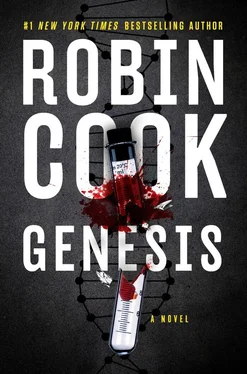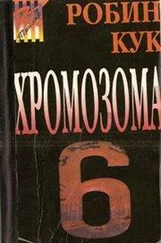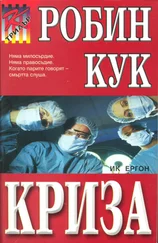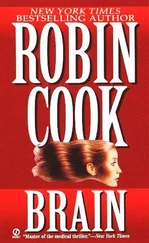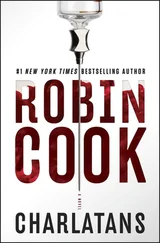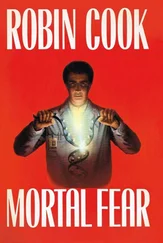Not wanting to keep Vinnie waiting, he ran from the elevator down the hall toward his office, but he did a double take as he breezed by Chet McGovern’s door. Retreating a few steps, he poked his head in. Chet was at his microscope.
“Have you heard the news about your favorite resident?” Jack said.
Chet looked up. “Only that she didn’t show up for your case.”
“Meaning you haven’t heard why she didn’t show up?” Jack questioned. He was surprised, since news of this sort normally spread around the OCME at the speed of light. He assumed that his being in the pit meant that he was the last to know.
“Are you going to tell me, or do I have to guess?” Chet asked.
“She died,” Jack said.
“Come on!” Chet complained. He sat back in his seat and stared at Jack.
“I’m serious. She’s in the cooler. Vinnie and I are about to do her.”
“Are you joking with me?” Chet asked with incredulity.
“No, I’m not,” Jack said. “Believe it or not, she’s yet another victim of the opioid crisis. She overdosed.”
“Awww,” Chet moaned insincerely. “What a tragedy. She was such a sweet person.”
“I just thought you’d like to know,” Jack said. “At least it will make the rest of the month a hell of a lot easier for the director of education.”
“Amen to that,” Chet said. “There’s some good in every disaster as long as you look hard enough. But what a waste, considering all that education.”
“Are you still being sarcastic?”
“No. I got the feeling she knew pathology cold.”
Jack gave Chet a quick nod of agreement before continuing down to his office. Throwing himself into his desk chair, he pulled out the NYU Medical School catalogue and looked up the phone number for the Pathology Department. Using his landline, he put in the call. As he waited for it to go through, he recalled Laurie telling him that Carl had called her when Kera Jacobsen had overdosed, asking if his department could do the autopsy. Jack wondered if there would be the same request, which he’d certainly have to deny.
The call was answered by one of the departmental secretaries, and Jack asked to be put through to Dr. Henderson. Without being asked, he gave his name and that he was calling from the Office of the Chief Medical Examiner. While he waited on hold, he was treated to some elevator music, something that he thought had gone out of style.
“Dr. Henderson,” Carl said with a resounding baritone voice.
Jack explained again who he was and was about to break the news when Carl said: “I apologize for interrupting, but I imagine you’re calling about Dr. Aria Nichols. I should let you know that we have already been informed by the police of her demise.”
“Okay, good,” Jack said. He felt he could hear the travail in the man’s voice. “That’s exactly why I’m calling. My wife, Dr. Laurie Montgomery, specifically asked me to give you a call to make sure you were aware. Were you told it was an apparent overdose?”
“Yes, we were told it was yet another overdose,” Carl said. “As you probably know, this is the second member of our healthcare community who has taken this deplorable path in a single week. I suppose it’s a reflection of our times that so many of our young people are resorting to drugs. Something drastic needs to be done.”
“I couldn’t agree more,” Jack said. What he thought but didn’t say was that maybe so many elementary school boys shouldn’t be put on drugs for supposed ADHD.
“Earlier this week when the social worker, Kera Jacobsen, passed away, I called your wife to offer that we do the autopsy ourselves to keep it in-house, but she turned us down. We’d like to extend the same offer for Dr. Nichols. Our president, Vernon Pierce, is understandably even more concerned with this second overdose. The last thing we want is for our institution to be associated with drug abuse.”
“We have to do the autopsy here at the OCME by law,” Jack said. Having anticipated this request, he knew what to say.
“That’s what your wife explained,” Carl said. “But I trust there’s no harm in our offering. We do hope you again limit the access the media has to this unfortunate episode, particularly the tabloid media.”
“We try to be very careful about what information the media gets,” Jack said.
“And we are appreciative of that,” Carl said. “Changing the subject, I have to say I’m not terribly surprised by Dr. Nichols’s having a drug problem. I can see how drugs would have an appeal to her. Although gifted in some respects, she was a troubled, strong-willed young woman. I can tell you as chief of the department, her tenure here as a resident has been rocky over the years, which I heard from your wife was the same initially at the OCME.”
“Dr. Nichols and our director of education didn’t see eye to eye,” Jack said without being specific.
“When I spoke with your wife by phone, her impression was that Dr. Nichols wasn’t taking her OCME rotation seriously. That prompted me to have a talk with her. During that conversation she fully admitted that in the beginning of the rotation, she was totally bored with forensic pathology and thought it should be an elective, not a required course. But then she said that things changed.”
“Things probably changed when my wife allowed her to do the autopsy on Kera Jacobsen rather than just observe,” Jack said. “The decision wasn’t a spur-of-the-moment idea. My wife feels that NYU pathology resident rotation here at the OCME hasn’t been given the attention it deserves over the years and that the residents need to be given more responsibility.”
“Whatever the reason, it worked wonders,” Carl said. “I got the impression that finding the unexpected fetus caught Dr. Nichols’s attention and motivated her to find the child’s father by using genetic genealogy. That marked a significant transition from apathy to zealous investigator. Were you personally aware of that change in her attitude?”
“I was more or less aware,” Jack admitted. “My wife mentioned Dr. Nichols’s interest in investigating the case. I have to admit, I found the idea of using genetic genealogy as a forensic aid an intriguing notion, especially with the remarkable geometric ballooning of the ancestral DNA databases. My sense is that for some homicide cases, it could have significant merit.”
“Dr. Nichols certainly thought it did,” Carl said. “She showed me some impressive family trees she’d helped to create for the Kera Jacobsen case to find the father of the fetus. Did you see them, by chance?”
“No, I didn’t see them,” Jack said. “Dr. Nichols was working under the supervision of my wife on that case, and I wasn’t involved. But I did do several cases with her yesterday. I was impressed with her as a prosector, but I found her not to be the easiest person to work with.”
“That’s a kind way to put it,” Carl said. “As I told your wife, Dr. Nichols was not a team player and was often antisocial. That said, she apparently related well with your wife, well enough that your wife confided she was having surgery soon. Is she having her surgery here in our medical center?”
“She is,” Jack said. After a quick glance at his desk clock, he added: “In fact, she’s probably on her way to Admitting as we speak, which is the reason she asked me to call you in her stead.”
“I thought that might be the case,” Carl said. “I hope it all goes well although I’m sure it will. And thank you for calling.” Then he abruptly hung up before Jack had a chance to respond.
Jack pulled the handset away from his face to look at it as if it would explain the sudden termination of the call. As he replayed the conversation in his mind, he had the odd feeling that he had been interrogated but couldn’t figure out why or about what. He shrugged, then slowly lowered the handset toward its base, letting it drop for the last fraction of an inch, causing a finalizing kerplunk.
Читать дальше
